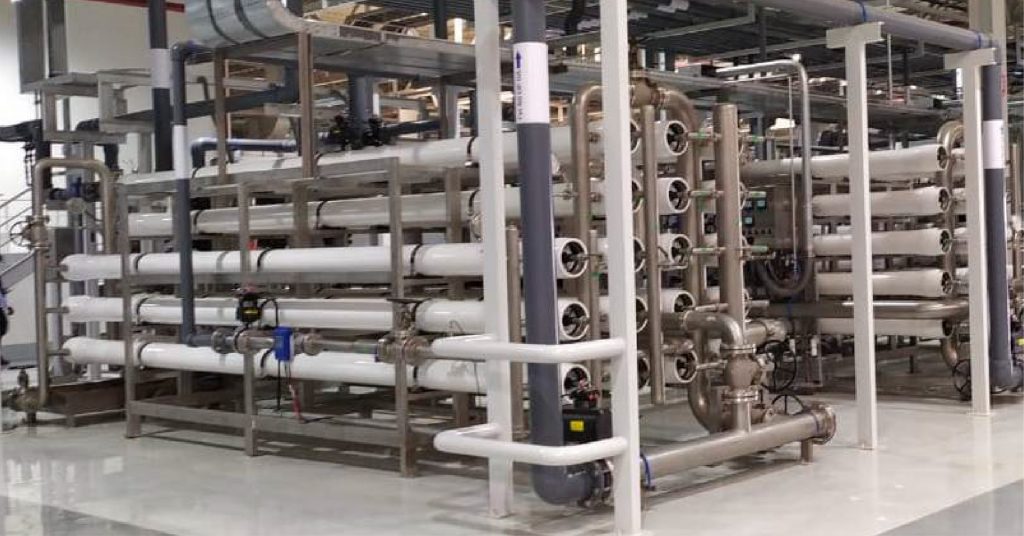Bangladesh faces significant challenges in wastewater management, leading to environmental degradation and public health implications. However, with the advancement of Membrane Bioreactor (MBR) technology, there’s hope for a sustainable solution.
MBR technology for wastewater treatment in Bangladesh holds immense potential to revolutionize sustainable wastewater treatment in Bangladesh, offering a promising solution to the country’s pressing environmental concerns.
The Wastewater Crisis in Bangladesh: Current State and Urgent Need for Solutions
Bangladesh faces a significant wastewater crisis, characterized by inadequate management practices and infrastructure. The current state of wastewater management in Bangladesh is alarming, with a large portion of untreated effluents being discharged into water bodies, contaminating valuable freshwater sources, and posing severe environmental and public health risks. Rapid urbanization, industrialization, and population growth have exacerbated the situation, leading to heightened concerns about water pollution and its detrimental effects on ecosystems and human health.
Need for Innovative and Sustainable Solutions:
- Urgent need for investment in wastewater treatment infrastructure
- Adoption of advanced technologies such as Membrane Bioreactor (MBR) technology.
- Integrated water management approaches.
Understanding MBR Technology
Membrane Bioreactor (MBR) technology is a groundbreaking solution for wastewater treatment in Bangladesh, integrating biological processes with advanced membrane filtration. This innovative approach ensures the efficient removal of contaminants, producing high-quality treated effluents. With various membrane configurations available, MBR technology offers a versatile solution tailored to the specific treatment requirements of Bangladesh’s urban and industrial areas, paving the way for sustainable wastewater management practices.
Ion Exchange’s wastewater treatment systems are designed with the primary objectives of producing an environmentally safe fluid waste stream, known as treated effluent, and solid waste, termed treated sludge, suitable for disposal or reuse, often as farm fertilizer. With a focus on sustainability, our pioneering solutions leverage Membrane Bioreactor (MBR) technology for wastewater treatment in Bangladesh. Through a comprehensive approach, we achieve efficient water management by recycling wastewater, reducing source contamination, and minimizing waste through product recovery and waste reduction strategies. Here are the product range offered by Ion Exchange:
- INDION Membrane Bio-Reactor (MBR): Combining the latest advancements in biological treatment, this innovative technology presents progress in wastewater management. By seamlessly merging submerged membrane filtration with biological processes, it generates high-quality permeate ideal for treating both domestic sewage and industrial wastewater. Distinguished by its single-packaged unit design, minimal civil construction needs, and compact size, this system stands out for its efficiency. Compared to conventional systems, it demands only 25% of the space, offering a significant reduction in land usage. Additionally, its low energy consumption, measured at 1.14 kWh per 1000 gallons for filtration, underscores its eco-friendliness. With minimal power and chemical requirements, along with low operating costs, this technology presents a sustainable and cost-effective solution to wastewater treatment challenges.
- INDION IPC Membrane Bio-reactor: This innovative solution combines the advantages of both flat sheet and hollow fiber membrane systems, delivering exceptional results in wastewater treatment. By integrating these technologies, the system produces high-quality treated effluent that sticks to all discharge standards, eliminating the need for additional chemical treatments. Noteworthy advantages include its ease of operation, minimal operating costs, and self-maintenance capabilities. With a modular construction and design, the system offers flexibility and scalability while remaining exceptionally compact, requiring only 25% of the space compared to conventional systems. Moreover, its low energy consumption, with a maximum of 3 kW/h for filtration, underscores its efficiency and sustainability.
- INDION ECO MBR: This is a specialized solution tailored for smaller effluent capacities, offering a compact extension of the membrane bio-reactor process. By efficiently eliminating suspended matter from activated sludge, this system ensures the production of high-quality treated water suitable for discharge and reuse, all without the necessity for additional chemical treatments. Boasting features such as UF-PVDF membranes, a 3D spacer fabric support structure with a thickness of merely 3 mm, and a double-coated, extremely compact design, the INDION Eco MBR Technology for Wastewater Treatment in Bangladesh, guarantees ease of operation and maintenance, alongside remarkably low operating costs. Its advantages, including improved fouling control, high flux yield, minimal footprint, and robust design, coupled with reduced aeration demand, make it the perfect choice for smaller-scale applications where space and efficiency are paramount.
In conclusion, sustainable wastewater treatment is paramount for Bangladesh’s environmental preservation and public health. Membrane Bioreactor (MBR) technology offers a transformative solution to the country’s wastewater crisis with its efficiency and effectiveness in producing high-quality treated effluents. Embracing MBR technology for wastewater treatment in Bangladesh is a necessity and a step towards a cleaner and healthier future.
Connect with our wastewater treatment specialists in Bangladesh to know more.


